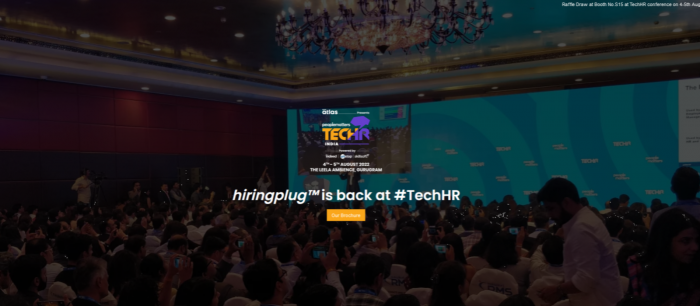HR is a facilitator for most businesses, whether it be related to hiring the right talent, developing existing talent, measuring performance or enabling change in an organization. This role too, is evolving with HR now being pivotal in directing and assisting the organization in strategy and future direction of the company.
Digital transformation is now being elevated to the very front and center of reigning company strategies which was just a priced possession earlier subjected to be kept as a shiny toy in and within the IT department’s corner shelf.
How will HR help to bring digital transformation?
HR today in most leading companies work in alliance with the CEO, CCO and CFO to create a strategic framework for digitalization of the business and take on new challenges.
In the recent business scenario digital transformation is watching carefully over the sectors of retail energy and healthcare insurance. HR becomes an important factor while effectively making every strategy come to life and reach desired execution.
Does an HR need to be tech savvy?
It is more about acquiring knowledge which encircles digital changes concerning the fabric of communication rather than being a techie or digitally savvy. It requires HR to know how digitization will change the entire dynamics of the customer-company relationship.
Minor details should be kept in mind which directs organizations operating in the ‘experience economy’ which demands a distinguished service profile whether it is about customers ringing the bells of call-centers or any other assistance. There is a huge demand for efficient service which comes in the form of digitization. So, it can be easily understood that one doesn’t have to worry about being equipped with all latest tech knowledge to understand the basics of this current trend instead there is a need to scrutinize the necessity of digitization which not only will be a boon for efficiency and away from errors in work but, also will ensure employee work engagement, performance and learning at work.
 Basic communication problems need be analyzed and should be solved by efficient digital solutions such as updated operating systems offering exciting tools to avoid unnecessary time consumption in irrelevant tasks and digital boards for every employee gauging their performance. These transformations will be responsible for making work even more interesting.
Basic communication problems need be analyzed and should be solved by efficient digital solutions such as updated operating systems offering exciting tools to avoid unnecessary time consumption in irrelevant tasks and digital boards for every employee gauging their performance. These transformations will be responsible for making work even more interesting.What HR needs to understand?
It is about being assured that each and everything is aligned with perfection and providing expertise and recommendations back to the organization upon how a set of skills needs to be utilized as well as mapped for competency and future growth of the company.
What should be kept in mind when it comes to digital transformation?
 Digital transformation is necessarily needed to make the product/service more efficient and void of unwanted flaws that cause work delays.Digital transformation should focus on connectivity within offices which shall encourage employee collaboration and foster successful office relationships that help get work done better, increase team morale and company culture in a way that leads to sustainable success for the future.
Digital transformation is necessarily needed to make the product/service more efficient and void of unwanted flaws that cause work delays.Digital transformation should focus on connectivity within offices which shall encourage employee collaboration and foster successful office relationships that help get work done better, increase team morale and company culture in a way that leads to sustainable success for the future.Employees need to be provided with digital transparency that is wholly dedicated to having no restriction on sharing knowledge about progress. The possible solution is incorporating the workplaces with essential digital equipment that not only lets the workers have a valuable insight on company’s progress but, on individuals themselves too.
 Employees need to be connected to corporate social networks which have proven to be of a great use when it comes to increment in productivity.Digital transformation can allow processing humongous data with extreme ease and great accuracy. Use of proper software and capable systems in the work premises will do great.HR needs to see the need of current employment trends in the workplace and convey their insights to the head supervisors for the implication of these ideas.
Employees need to be connected to corporate social networks which have proven to be of a great use when it comes to increment in productivity.Digital transformation can allow processing humongous data with extreme ease and great accuracy. Use of proper software and capable systems in the work premises will do great.HR needs to see the need of current employment trends in the workplace and convey their insights to the head supervisors for the implication of these ideas.HR will be the first point of contact for digital transformation within organizations who will be responsible for mediating and transferring this knowledge to the rest of the organization. And, therefore their role cannot be undermined in this regard. Business leaders also need to understand this and facilitate HR in rolling out these changes by empowering them to make decisions and allow the room to make mistakes and learn from them which is inevitable during transformation.
Posted in : HR Technology
Views : 31613
Leave a Comment
Hey there !
Author Details
Related Blogs
Popular Tags
Subscribe Now

Related Blogs
More fromHR Technology







